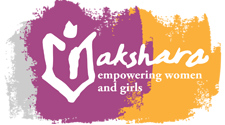RECLAIMING THE CITY
Cities all over the world are growing at a phenomenon rate due to rapid urbanisation. It is estimated that more than half of India’s population will be living in urban areas by 2030
India’s rapid urbanization makes cities the locus of growth, livelihoods and cultural activities as well as generates a host of problems and inequalities. Women – like all city dwellers – should have rights over their city. But what does the “right to the city” mean?
It means that every person should have the freedom of movement, needs basic infrastructure, satisfaction of basic human needs, safe and affordable transportation, participation in decision making, law and order, opportunities for education, health and culture, equality and diversity. One of the main factors that mitigate against the realization of these rights for women is lack of safety due to the fear of violence.
OUR STRATEGY
The starting premise of Akshara’s Project “Reclaiming the City, Ensuring Safety for Women and Girls” is that women have a fundamental right to live in their city, free from violence and the fear of violence, so as to realize opportunities of livelihood, mobility, political and cultural participation.
Our Strategy is: Mobilising Communities of Youth through grassroots work with young men and women to undertake safety audits and social actions, which brings attention to the issue as well as creates public awareness. Every year, we train youth from 36 colleges and bastis to take up safety walks in different parts of the city. Through these walks, we are able to build evidence of unsafe areas where violence and sexual harassment take place. In the past 5 years, about 250 youth have ‘audited’ the majority of Western and Central Line railway stations, open spaces or parks and maidans and streets in Mumbai through some 79 safety walks. On the basis of this people based evidence, we have taken up advocacy with the authorities. We have worked with BEST officials for safety within buses; with the Central Railways for sexual harassment in compartments; with the Police and the Govt.
Mobilising Communities of Youth through grassroots work with young men and women to undertake safety audits and social actions, which brings attention to the issue as well as creates public awareness. Every year, we train youth from 36 colleges and bastis to take up safety walks in different parts of the city. Through these walks, we are able to build evidence of unsafe areas where violence and sexual harassment take place. In the past 5 years, about 250 youth have ‘audited’ the majority of Western and Central Line railway stations, open spaces or parks and maidans and streets in Mumbai through some 79 safety walks. On the basis of this people based evidence, we have taken up advocacy with the authorities. We have worked with BEST officials for safety within buses; with the Central Railways for sexual harassment in compartments; with the Police and the Govt.
Training Para-Counsellors for Prevention of Violence:
Every year, Akshara sponsors about 20-30 women to take para-counselling courses accredited by TISS, so that they can support women facing sexual harassment and violence.
Involving College Teachers:
We organise an online gender courses for college teachers and students to understand sexual harassment and learn how to intervene in cases with the University of Mumbai and SNDT University.
Working with the State:
– Trained over 1,500 bus conductors in gender awareness and handling sexual harassment cases
– Put over 1000 stickers stamped with the 103 helpline number in Autos in 2014
– Trained Railway personnel to ensure Ladies Only compartments and prevention of sexual harassment
– Trained approximately 550 Women Police Constables who work with the 103 helpline in Mumbai
– Presented a Comprehensive Plan for the Safety of Women in Mumbai to ex CM Chauhan in 2013
– Interventions in the Development Plan for Mumbai on gender issues
Click to see Report: EMPOWERING WOMEN’S MOBILITY
 Public Awareness
Public Awareness
Through the youth and women oriented programs, Akshara takes up public campaigns:
– In public events like Equal Streets
– On the streets
– Through the use of Internet related websites
– For survivors of violence to understand and decide what action to take
Click to see Report : Railway Safety Audit Report

Engendering the Development Plan
Akshara has actively advocated for women’s safety in tandem with the state and we were the first to incorporate a whole chapter on Gender into the Development Plan of Mumbai.
What does this Gender Chapter consist of? Here are the 6 parameters:-
– Recognition that women and men experience cities differently
– Vision of increasing women’s workforce participation
– Provision of various amenities for women,
– Creating new legends, reserving land
– Demanding recognition of the effort of gender and DP group
– Formulation of policies for all the planned amenities and getting them approved.
And there’s more! This is what the chapter is inclusive of now:-
– Mixed land use accepted
– 27 multipurpose Housing for working women
– 129 child care centres
– Old age and homeless shelter also for women
– Centers for skill training
– Public toilets
– Hawking space for women
– 10 % allocation in housing
But this is not all. We need more planning and incorporation of architecture and streets and houses from the perspective of safety for women. We need more women in these spaces to articulate an open, free and secure public spaces for all women.
